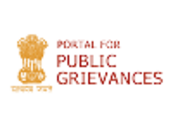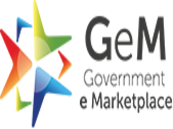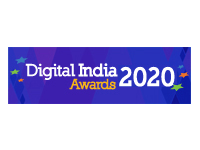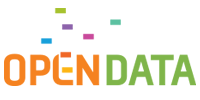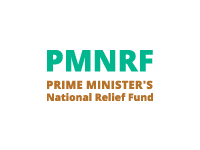VALUE ADDED PATENT INFORMATION SERVICES NICMAP, CMTI
National Information Centre for Machine Tools and Production Engineering (NICMAP) is a Sectoral Information Centre set up in The Central Manufacturing Technology Institute under NISSAT scheme of Government of India to cater to the information needs of the engineering industries. NICMAP has developed comprehensive bibliographic databases of articles, books and Indian patents on various aspects related to metalworking and non-bibliographic databases dealing with addresses of manufacturers/suppliers and statistical data. The centre also provides translation and reprographic services.
Patent information is an important source of technical and scientific knowledge. New technology is most often published first in patent literature. In the era of rapid technological change, it is very important to maintain a close watch on the massive information on patents. This information is very vital for industrialists and scientists to keep ahead in their respective areas as it provides an insight into the trends in technology, helps to predict future developments, avoids duplication in research and development and solves problems associated with intellectual property rights. Recognising the need for such an information service to the engineering sector, NISSAT established the `Value Added Patent Information Services' in CMTI, Bangalore.
The services offered by the centre are:
Bibliographic Services
Searches will be made in the patent databases according to the requirement of the user and a listing containing the bibliographic details of the retrieved records will be supplied.
SDI Services
Searches will be made in the patent databases to retrieve information to match the previously stored subject profile of the user. A bibliography of the retrieved records along with abstracts will be mailed to the user. The service will be provided on a periodical basis.
Full Text Information
The full text databases available on CD-ROM will be used for providing copies of patent documents to the users. The documents that are not available in the databases at this VAPIS centre will be procured from the external sources wherever possible and supplied.
Trend Reports
Global research trend reports will be compiled based on an evaluation of patent literature in a particular subject and supplemented with other literature information. The report will be made for a specific client or for a group of clients.
Customised Search Services
Search will be made in the patent databases to retrieve the patents dealing with the subject profile defined by the client. Copies of the patent documents thus retrieved will be supplied to the client. The services will be provided on a periodical basis.
Comprehensive Search Service
This service is offered with a view towards patenting a new product or process, locating needed technology, avoiding duplication in R&D, escaping infringements, etc. A comprehensive survey provides full text of patents and other relevant technical literature.
Other Value Added Services
Any other value other than mentioned in the above listed services will be added to the information depending on the clients' requirements.
All are welcome to utilise the services of the VAPIS center for the benefit of their organisations.
For details contact:
Mr B. Sudarshan
Sr Scientist, NICMAP/CMTI
Tumkar Road, P.O. Yeshwantpur,
Bangalore -560022 (Karnataka)
E-mail-tis[at]cmti[dot]ernet[dot]in
Fax-080-3370428
Tel-080-3373462
Tough Copyright Laws May Pose Problems
Plans to strengthen US Copyright Laws to cover the electronic transmission of words, sounds and images had brought criticism from librarians and others keen to preserve a free flow of information. The critics fear that the changes would restrict people's traditional rights' to borrow material or copy small portions of published matter.
The US Department of Commerce's working Group on Intellectual Property Rights which came up with the proposal last year, hopes its findings will be approved not only by Congress but also by the country's foreign trading partners.
One of the recommended changes is that transmission of a work electronically falls within the definition of distribution, thus making the transmission of work the sole right of the copyright holder. Another change is that it would be illegal to tamper with `copyright management' portion of a piece of work. This could include encryption technologies that prevent copying or which automatically tell the copyright or which automatically tell the copyright holder whenever a work is downloaded.
But these changes would restrict people's access to information. The tradition of `fair use' allows people free use of copyrighted material under some circumstances. For instance, people can borrow a book from library, send newspaper clipping to a friend through post or photocopy part of a book for reference. Under the proposed rules people might have to pay to do these things. According to Pamela Samuelson, a visiting professor of law at the University of Pittsburgh "In a world where it is illegal to share information with a friend or colleague where every person has to have an individual licence from the copyright owner, there would be less communication and fewer opportunities to share the information."
Besides this, administrators of networks would be held responsible for any copyrighted material on their machines. That means a company such as Compu Serve would be responsible for ensuring that none of its millions of users was storing material that violated copyrights.
— Journal of Intellectual Property Rights May, 1996.
Copyright of Software
National Association of Software and Service Companies (NASSCOM) has published a comprehensive booklet covering various policies and procedures regarding copyright of software. Following are the extracts from this publication in the form of questions and answers:
1. Is it necessary to deposit accompanying documents of the computer program for which copyright is being sought?
Documentation which normally accompanies the program is regarded as separate work and for this reason if the same has to be registered, it must be separately registered and not combined with the computer program in a single application.
2. If an employee/employees in a company develop a program, do they own the copyright?
No, in the case of a program made in the course of author's employment under a contract of service or apprenticeship, the employer shall, in the absence of any agreement to the contrary, be the first owner of the copyright.
3. If an independent third party develops a program for a company, who owns the copyright?
Works created by third parties on commission do not automatically vest the copyright in the commissioning party. If the third party is an independent contractor it is essential for the commissioning party to obtain the copyright through a written deed of assignment. It is a common misconception that the copyright automatically belongs to the commissioning party. Thus, it is only where the developer is an employee creating the work under a contract of service that the rights belong to the employer.
4. What is the rule for the transfer of copyright?
The owner of the copyright in an existing work or prospective owner of the copyright in a future work may assign to any person the copyright either wholly or partially in the following manner:
(i) for the entire world or for a specific country or territory; or
(ii) for the full term of copyright or part thereof; or
(iii) relating to all the rights comprising the copyright or only part of such rights.
For further details, please contact:
National Association of Software and Service Companies (NASSCOM)
109, Ashoka Hotel, Chanakyapuri, NEWDELHI 110021.
Tel: (11) 6885474
Fax:(11)6885475.













